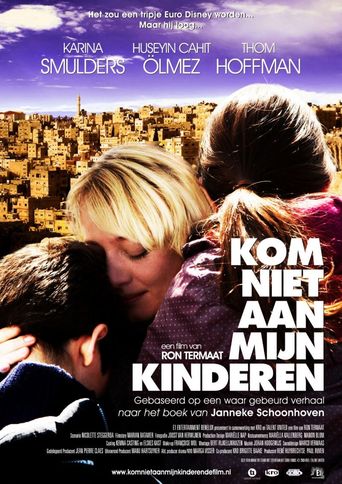t_atzmueller
Basically, what we get is another variation of „Not Without My Daughter" (1991), likewise based on a true story: Hanne (Karina Smolders, playing a role similar to Sally Field's Betty Mahmoody) is a naïve young woman from The Netherlands, who marries Arab Nazim (Cahit Olmez), has two children with him, both which are abducted by his father to his native Syria. A legal and eventually physical struggle to reunite the children with their mother ensues.It would have been easy to turn this film into a pure tear-jerker, based on sentimentality or prying on the audience sense for the sensational, but "Kom niet aan mijn kinderen" actually remains rather neutral, unsentimental, and essentially non-judgemental.For contemporary standards, the film doesn't try to ride the "politically correct" wave that is currently popular in Europe; rather, it shows us the sober results when modern-western culture clashes with a mentality that is basically rooted in the dark-ages. Special credit must be given to actor Olmez: again, it would have been easy to draw his character as an essentially atavistic character but his portrayal goes deeper than that. Nizar isn't some backward fundamentalist, but rather a victim-turned-abuser; scarred by a paranoid upbringing in a restrictive society and feeling abused and unwanted in Europe, we feel that he loves his children but simply cannot jump over his own shadow. There's a fine line between feeling sympathy for Nizar and outrage at the way he treats his children and (ex-)wife."Kom niet aan mijn kinderen" is obvious made-for-TV; isn't big, hyped cinema like above mentioned „Not Without My Daughter", but that's an advantage, rather than a limitation. It's unlikely you'll come across this film outside of Europe or even outside of Europe's more quality-geared TV-channels, but if you do, I can recommend it over the melodramatic "Not Without My Daughter" anytime.6/10

